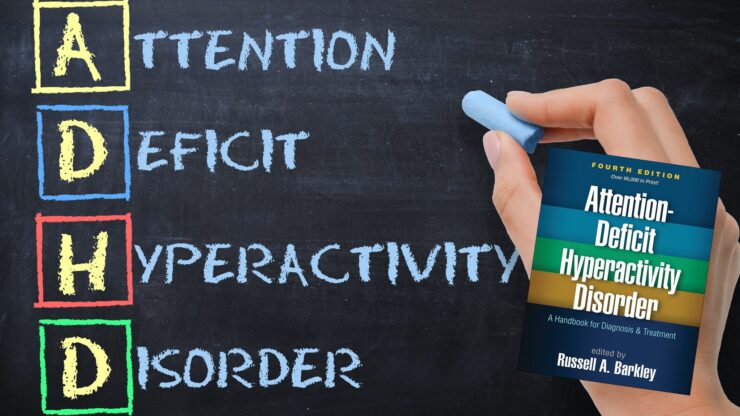ADHD, or Attention Deficit Hyperactivity Disorder, is a prevalent neurodevelopmental condition that impacts individuals of all ages, including children and adults. The symptoms of ADHD, which include hyperactivity, inattention and impulsivity, can significantly impact a child’s daily life, including their academic performance, social relationships, and overall well-being.
Dr. Russell Barkley, a clinical psychologist and leading expert on ADHD, has developed six principles for raising a child with ADHD that can help parents and caregivers better understand and support their child’s needs.
These principles are based on his theory that the hyperactive subtype of ADHD – which happens to be the most prevalent among kids and the subject of most research – is not a deficit in attention, but rather a glitch in impulse control and self-discipline. It’s like they have no problem receiving information, but their problem lies in regulating their output. In essence, they have a hard time managing their emotions and actions and using their “inner voice” to help them stay on track.
Principle #1: ADHD is a Neurodevelopmental Disorder
The first principle to understand is that ADHD is a neurodevelopmental disorder, which means that it affects the brain’s development and function. Children with ADHD may have differences in the areas of the brain responsible for attention, impulse control, and emotion regulation. As a result, they may struggle with focusing, planning, and completing tasks, as well as regulating their emotions and behavior.
Principle #2: ADHD is a Chronic Condition
ADHD is a chronic condition that typically persists into adulthood. While some children may outgrow certain symptoms as they mature, many continue to experience challenges with attention, organization, and time management throughout their lives. It’s essential to recognize that ADHD is not something that can be cured, but rather something that needs to be managed and accommodated throughout a person’s life.
Principle #3: ADHD is a Highly Heritable Disorder
ADHD has a strong genetic component, meaning that it runs in families. While there is no single gene that causes ADHD, research has shown that multiple genes are involved in the development of the disorder. Understanding the genetic component of ADHD can help parents and caregivers recognize that their child’s behavior is not their fault or due to poor parenting.
Principle #4: ADHD is a Disorder of Executive Function
Executive function refers to a collection of cognitive processes that allow us to strategize, arrange, and accomplish intricate tasks. Children with ADHD often have difficulties with executive function, which can impact their ability to complete tasks, follow directions, and manage their time effectively. Parents and caregivers can support their child’s executive function skills by breaking tasks down into manageable steps, providing structure and routine, and using visual aids such as calendars and checklists.
Principle #5: ADHD Requires a Multimodal Treatment Approach
ADHD is typically treated with a combination of medication, behavioral therapy, and accommodations to support academic and social success. While medication can be effective in reducing symptoms, it is not a cure and must be combined with other strategies to provide the best outcomes. Behavioral therapy can help children with ADHD learn skills such as self-regulation and problem-solving, while accommodations such as extra time on tests or preferential seating can help level the playing field in academic settings.
Principle #6: Positive Parenting Strategies are Essential
Finally, Dr. Barkley emphasizes the importance of positive parenting strategies in raising a child with ADHD. These include strategies such as providing clear and consistent expectations, offering praise and positive reinforcement for good behavior, and setting up a structured and supportive home environment. By using these strategies, parents and caregivers can help their child build self-esteem and develop a positive sense of self, which is essential for success in all areas of life.
ALSO: Your Child’s Genetics Are Out Of Your Control
Raising a child with ADHD can be challenging, but by understanding these principles, parents and caregivers can better support their child’s needs and promote their academic and social success. With the right combination of medication, behavioral therapy, and positive parenting strategies, children with ADHD can thrive and reach their full potential.








Add comment